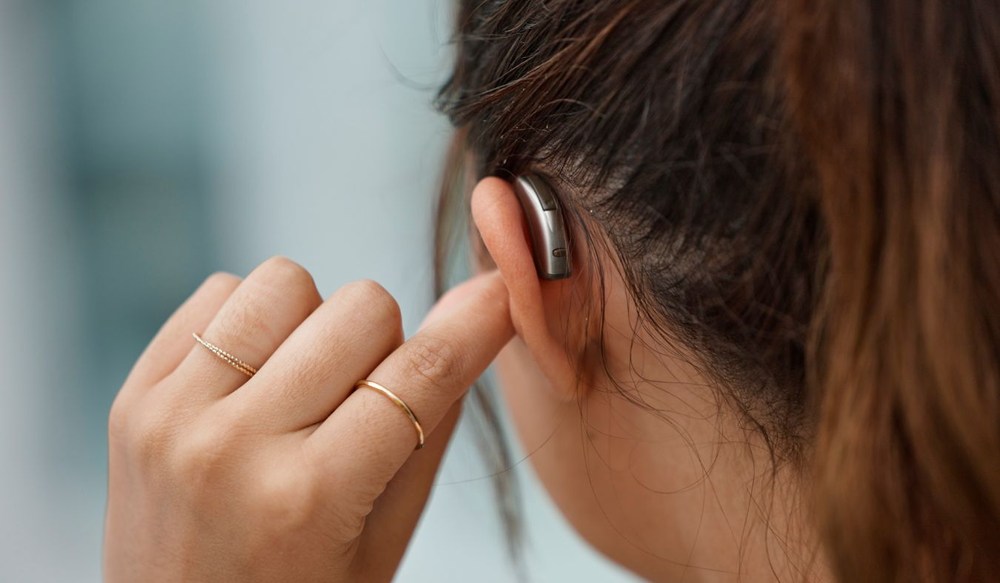Do I Need a Hearing Test? Screening Guidelines After 40
After 40, most of us get more intentional about health maintenance. You

By: admin | August 21, 2025
Hearing loss can sometimes make everyday situations more difficult, and it may leave you feeling apart from others. Whether it is a recent change or something you have managed for many years, it is natural to wonder how others in similar situations live with hearing loss. While family and friends may be caring and supportive, it can be especially meaningful to talk with people who have firsthand experience living with hearing loss.
Hearing health support groups bring together individuals who face similar challenges and adjustments. These groups offer a space to share practical advice, explore workable solutions and hear perspectives from those who understand the daily realities of hearing loss. While your audiologist provides essential treatment guidance and your family offers emotional support, support groups fill a different but equally important role by connecting you with others that understands the day-to-day realities of living with hearing loss.
Hearing health support groups are designed to give people a place where they can openly share their experiences without feeling judged or misunderstood. They offer a setting where members can talk about the challenges they face, from adjusting to hearing aids to managing conversations in noisy settings. These groups also create an opportunity to learn from others who have found practical ways to handle similar situations, which can be reassuring for those who may feel uncertain about their own process.
Beyond sharing stories, support groups often focus on building a sense of connection and belonging. They can provide encouragement during difficult times and celebrate progress, no matter how small. Many groups also share information about local resources, upcoming events or new tools that might improve daily communication. By combining emotional support with practical knowledge, these groups aim to make living with hearing loss a more manageable and less isolating experience.
Sharing your story in a hearing health support group can be a practical way to connect with others who have faced similar situations. Talking about your experiences, whether they involve everyday difficulties or small improvements, can help create understanding within the group. It also lets others see that you may be going through similar situations, which can make you feel more confident with hearing loss.
Discussing your experiences can also be useful for exchanging information. Your approach to handling certain situations might give someone else an idea they had not considered, and in turn you may learn new strategies from other members. Hearing different perspectives can help you look at your own situation in a more informed way.
A group setting offers a space for these conversations to take place without pressure or judgment. Members can share their views, listen to others and offer support when it is appropriate. Over time, these exchanges can build a sense of trust within the group and create a resource for dealing with the day-to-day realities of hearing loss.
Hearing health support groups can be a dependable source of information for people looking to better understand hearing loss and the care options available. Members often share their own experiences with hearing tests, hearing aids and other treatments, which can help you learn what to expect in real-world situations. While this advice does not replace guidance from an audiologist, it can give you practical insight that comes from living with hearing changes day to day.
These groups can also help you sort through the large amount of information available about hearing care. Conversations often focus on what has worked for different people, the questions they asked their audiologist and how they navigated challenges along the way. Hearing about these firsthand experiences can help you prepare for your own appointments and make more informed decisions about your care.
Hearing health support groups can be a good place to pick up practical communication tips that are based on real-life experience. Group members often share methods that have helped them in everyday conversations, whether it is at home, work or in public settings. These ideas are shaped by trial and error, which means you are hearing about approaches that people have already tested in situations similar to your own.
The advice you receive may be simple but effective, like finding the best seating position in a noisy room or letting others know in advance how they can help you follow a conversation. You might also learn how to use technology or assistive devices in ways you had not thought about before. Because the tips come from people who deal with hearing loss daily, they tend to be practical and easy to apply in your own life.
By sharing what works and listening to the experiences of others, you can build a set of tools to make communication smoother. These exchanges can help reduce the stress that often comes with social situations and give you more confidence when speaking with others. Over time, you may find yourself better prepared to handle conversations in a variety of settings.
Support groups are a helpful place to learn about new technology for hearing loss. Members share their experiences with different hearing devices, phone apps or alerting systems that can make daily life easier. By talking with others who use similar tools, you get honest feedback about what works well in real situations. Group discussions also give you a chance to ask questions and get tips on using technology effectively.
Hearing health support groups can help build confidence by offering a safe space to practice and improve communication skills. In these settings, there is no pressure to hide your hearing challenges, which makes it easier to try new strategies and see how they work in real conversations. Over time, participating in discussions with people who understand your experiences can help you feel more prepared to engage in social situations outside the group.
These groups also provide encouragement that comes from seeing others manage similar challenges successfully. Hearing how someone handled a noisy gathering or joined in a group conversation can make those situations feel less confusing. With consistent support and shared problem-solving, you may find it easier to approach social settings with more comfort and assurance.
It can be hard to stay motivated with your hearing care plan, especially when progress feels slow or routines change. Support from group members helps keep your attitude positive and reminds you why following your plan matters. Groups often celebrate small successes and encourage each other through setbacks, making it easier to keep up with appointments and use hearing devices as recommended.
Being part of a hearing health support group can help you stay motivated to follow your hearing care plan. When you hear about others’ experiences with treatment, adjustments and daily routines, it can remind you that managing your hearing health is an ongoing process. Listening to how others stick with their care plans or adapt to new devices can encourage you to keep up with your own steps, even when it feels challenging.
Support groups also offer accountability in a subtle but effective way. By sharing your progress and hearing updates from other members, you can stay focused on your goals and feel more responsible for maintaining your hearing care routine. Knowing that others are working through similar experiences can make it easier to follow recommendations from your audiologist and stick to strategies that improve your hearing.
Additionally, these groups provide a place to celebrate small successes along the way. Whether it is adjusting to a new hearing aid program or feeling more confident in noisy environments, hearing others acknowledge progress can reinforce your own achievements. This kind of ongoing encouragement helps you stay committed to your care plan and continue making positive changes that support your hearing over time.
Learning about hearing loss as a team with family and friends can make daily communication smoother. When everyone understands how hearing loss affects conversations, it becomes easier to support each other. Some support groups offer sessions or resources for families and friends, teaching helpful communication tips for use at home or in social settings. Practicing new skills together often leads to fewer misunderstandings and stronger relationships.
Self-advocacy means learning how to speak up for your needs in daily life. This helps you feel more confident when asking for support or making sure your hearing needs are met. Self-advocacy is important at work, school or during social events. For example, you might ask someone to face you while talking or request written instructions instead of spoken ones. Practicing these skills leads to better communication and supports your independence.
Regular visits to your audiologist are important for managing hearing loss and keeping your devices working well. Support groups can remind you to schedule appointments and encourage you to stay on track with your care. Setting reminders, sharing appointment dates with group members or even attending together can help everyone stay motivated and informed.
Support groups for hearing loss come in many forms, both online and in person. Some are led by professionals, while others are run by peers with personal experience. Online groups are helpful if you prefer connecting from home or need a flexible schedule. Local groups offer the chance to meet face-to-face and build connections in your community. Think about your comfort level with technology, privacy needs and whether you want to meet people nearby or from different places. Trying out different types of groups can help you find the best fit for your needs.
Joining a hearing health support group usually starts with identifying the right group for your needs. You can ask your audiologist for recommendations, search online for local or virtual groups or check with community centers and hearing health organizations. Look for a group that matches your schedule, offers a welcoming environment and focuses on topics that are relevant to your hearing experience.
Once you find a group, the next step is to reach out and ask about membership or attendance requirements. Some groups may require registration, while others allow you to drop in for meetings. Many organizations provide contact information, meeting times and details about the format so you know what to expect. Taking this first step is all it takes to start connecting with others who share similar experiences and challenges with hearing loss.
Connecting with a hearing health support group can make a real difference in how you manage hearing loss. These groups offer practical advice, emotional support and a sense of community that helps you feel understood. If you would like more information about support groups or need help finding one that fits your needs, Ear Specialists is here to help. Contact our Omaha or Bellevue, NE hearing clinics at (402) 206-2198 for guidance or resources so you can take the next step toward better hearing health.

After 40, most of us get more intentional about health maintenance. You
By: admin | January 19, 2026

A hearing aid fitting appointment is an important step in your hearing
By: admin | November 18, 2025

Hearing loss can sometimes make everyday situations more difficult, and it
By: admin | August 21, 2025
